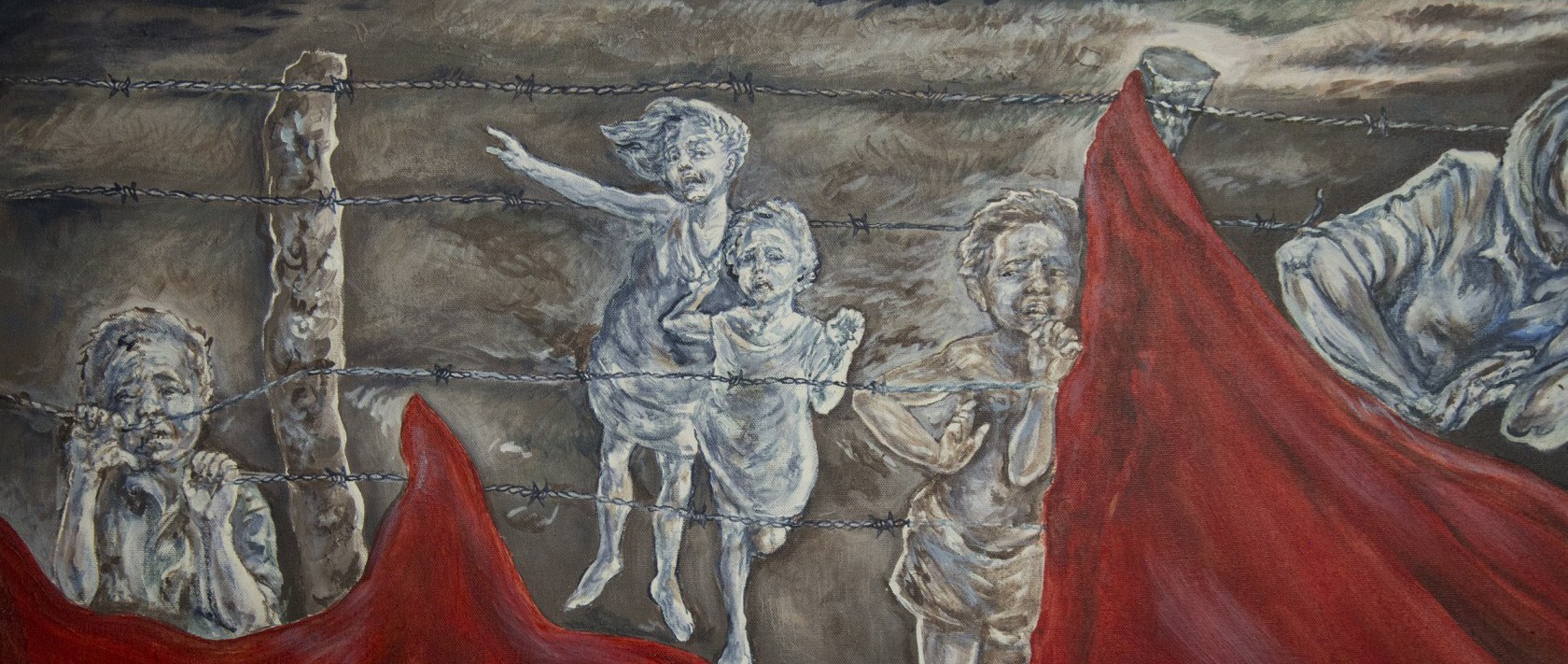The Pro-Búsqueda Association (Asociación Pro-Búsqueda) believes that, in order to resolve the more than 500 pending cases of children who disappeared during the civil war, it is necessary to open the military archives from that period.
This request has been denied by every president who has been in power since the signing of the Peace Accords.
“(We still need) the willingness of those who took part in the civil war and hold information on where these children were taken, so that we can provide an answer to these families who, for decades, have held onto this hope of discovering the truth and of being reunited,” said Ana Julia Escalante, director of that non-governmental organization.
In addition, Pro-Búsqueda’s representatives pointed to “the lack of willingness from State institutions to investigate the cases, to provide an answer to the families, to identify the patterns of disappearance, and to identify those responsible for the disappearances.”
“It is necessary for the Judicial Branch, the Prosecutor’s Office, and the Executive Branch to devote all their resources and establish a line of investigation in order to determine the identity of those responsible,” declared Pro-Búsqueda’s Helí Hernández.
Hernández explained that, in the case of sisters Ernestina and Erlinda Serrano Cruz, despite a ruling issued by the Inter-American Court of Human Rights (Corte IDH) 20 years ago, the Prosecutor’s Office has not opened an investigation on the matter.
“In this case of the Serrano Cruz sisters, there has been no action by the Prosecutor’s Office or the Chalatenango Court for more than 10 years,” he said.
Furthermore, Hernández stated that every administration has protected those responsible for these incidents by refusing to open the military archives from that time, which may contain information on where the missing children were taken.
“All governments have come and gone up to now, and there has been a policy of not touching these individuals (the perpetrators) through these (military) archives,” he added.
Although the investigation and search for disappeared persons is a State obligation, Pro-Búsqueda has managed to resolve 475 cases of children who disappeared during the civil war, out of the 1,053 on record.
Of those resolved cases, they have accounted for 296 children reunited with their biological families, 87 who have been located but are still awaiting reunion, and 92 who were found deceased.
Escalante added that it is important to establish the patterns of forced disappearance in the context of the civil war.
“Important bonds were broken for these individuals with their culture, their society, and especially their biological families,” she emphasized.
Moreover, the organization underscored the families’ right to reparation, to know the truth, and to receive reparation.
“Surviving families have the right to know the whereabouts of their sons and daughters—an inalienable (non-renounceable) right of every person—to know what happened, who was responsible, who took their children, and to have measures that provide reparation,” she explained.
Pro-Búsqueda pide abrir archivos militares para resolver casos de niñez desaparecida
La Asociación Pro-Búsqueda considera que para poder resolver los más de 500 casos de niñez desaparecida durante el conflicto armado pendientes es necesaria la apertura de los archivos militares de la época del conflicto armado,
Una petición que ha sido denegada por todos los presidentes que han estado en el poder desde la firma de los Acuerdos de Paz.
“Falta contar con la voluntad de quienes participaron en el conflicto armado y que tienen información de donde se llevaron esos niños y niñas para poderle dar una respuesta a estas familias que por décadas han mantenido esta esperanza de conocer la verdad, de poder reencontrarse”, manifestó Ana Julia Escalante, directora de esa organización no gubernamental.
Además, los representantes de Pro-Búsqueda señalaron “la falta de voluntad de las instituciones del Estado para investigar los casos para brindar una respuesta a las familias, establecer los patrones de desaparición y la identificación de los responsables de las desapariciones.
“Se necesita que el Órgano Judicial, la Fiscalía y el Ejecutivo dediquen todos sus recursos y establezcan una línea de investigación para poder establecer la identidad de los responsables”, declaró Helí Hernández, de Pro-Búsqueda.
Hernández explicó que en el caso de las hermanas Ernestina y Erlinda Serrano Cruz, pese a que hay una sentencia de la Corte Interamericana de Derechos Humanos (Corte IDH) emitida hace 20 años, la Fiscalía no ha abierto una investigación al respecto.
“En este caso de las hermanas Serrano Cruz no hay actividad de la Fiscalía, ni del Juzgado en Chalatenango, desde hace más de 10 años”, dijo.
Además, Hernández expuso que todos los gobiernos han protegido a los responsables de estos hechos al negarse a abrir los archivos militares de la época, donde puede haber información de dónde fueron enviados las niñas y los niños que ahora siguen desaparecidos.
“Han transcurrido todos los gobiernos hasta la fecha y también ha habido de no tocar a estas personas (los responsables) a través de estos archivos (militares)”, agregó.
Pese a que la investigación y búsqueda de personas desaparecidas es una obligación del Estado, la asociación Pro-Búsqueda ha logrado resolver hasta la fecha 475 casos de niñez desaparecida durante el conflicto armado de 1,053 que tienen registrados.
Del total de casos que han podido resolver, contabilizan 296 niños y niñas reencontrados con sus familia biológica, 87 localizados pero sigue en espera el reencuentro y 92 fueron hallados fallecidos.
Escalante agregó que es importante que se establezcan los patrones de desaparición forzada en el contexto del conflicto armado.
“Se rompieron vínculos importantes de estas personas con su cultura, con su sociedad y principalmente con su familia biológica”, enfatizó.
Por otro lado, esa organización señaló el derecho de las familias a la reparación, a conocer la verdad y a la reparación.
“Las familias sobrevivientes tienen el derecho de conocer el paradero de sus hijos e hijas, un derecho inalienable (irrenunciable) de toda persona, el saber qué pasó, quiénes fueron los responsables, quienes se llevaron a sus hijos e hijas y el contar con medidas que establezcan una reparación”, explicó.

